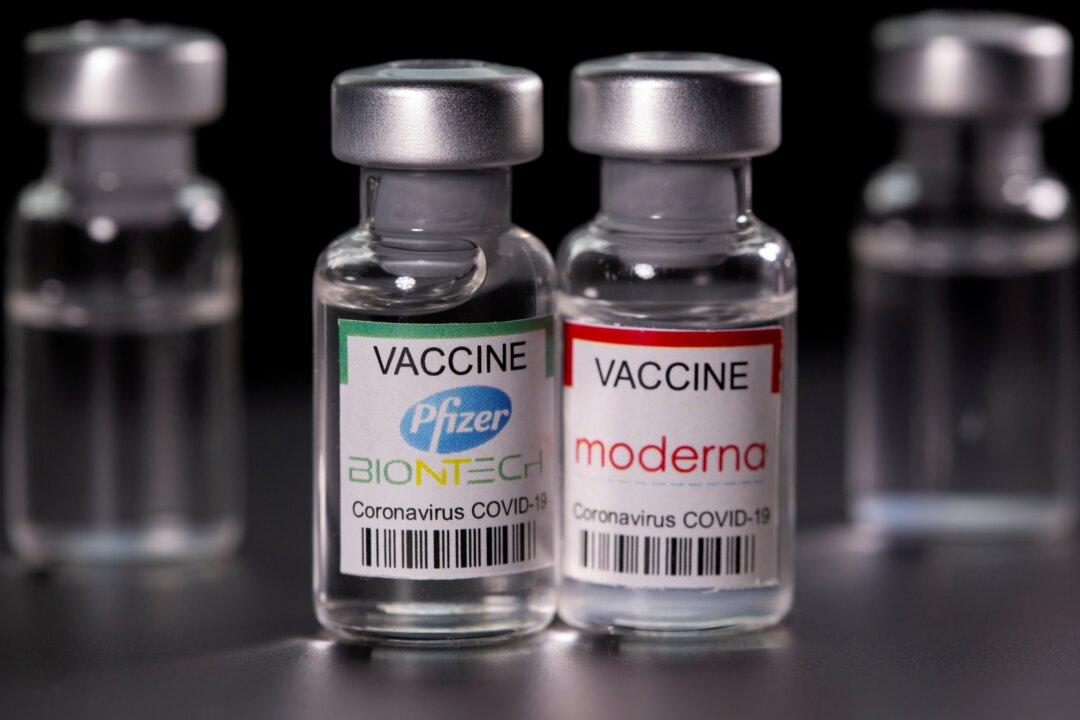The COVID-19 vaccines developed by Moderna and the Pfizer-BioNTech alliance both may provide lasting protection against the CCP (Chinese Communist Party) virus, researchers have said in a new study.
The peer-reviewed study, published on June 28 in Nature, found that the messenger RNA (mRNA) vaccines made by Moderna and the Pfizer-BioNTech team induced a “persistent” response within secondary lymphoid tissues, “enabling the generation of robust humoral immunity.”





